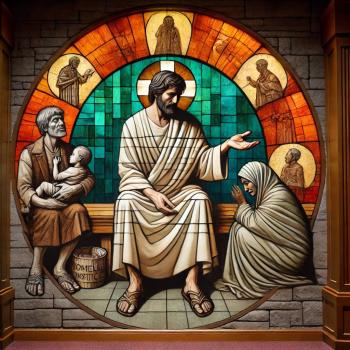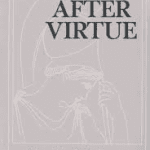Democracy Versus Tyranny
As is well-known, democracy is civilization's response to tyrannical monarchs. Therefore, while it is championed as the most righteous brand of government, this does not say anything about it being an efficient brand of government. In fact, if you think about it, it is the inefficiency of democratic government that sustains its righteousness. That is, since we don't want a power-hungry dictatorship taking over, we put a power-limiting democracy in its place.
In fact, this is what the word 'democracy' means: the will of the people. Meaning, the people ought to rule over themselves rather than the power-hungry dictator who does not have the best interest of the people in mind. The premise of democracy, therefore, is that one man or group should not trample over the masses in its midst and, for that reason, we ought to limit the power of the leadership.
Now, it is true that in the democratic system the minority still does not get its way and 49 percent of the population winds up having its will trampled on by the 51 percent of the population that opposes it, but that is certainly better than the alternative in which one monarch or a number of noblemen assert their will onto the majority.
Superseding Values
However, even the democratic system is not foolproof: What if 86 percent of the population votes in favor of killing off the other 14 percent? After all, if the end-all-be-all value is that the people should rule over themselves and that the minority's will should not rule over the majority's will, wouldn't it be "immoral" to stand up against the will of the majority? Wouldn't the minority be dictating to the majority and violating the majority's right to societal self-determination if they would attempt to resist the slaughter? (Of course, this actually happened in Nazi Germany.)
Our answer to this quandary would have to be that sometimes there are other values that outweigh, supersede, and trump the value of having the people rule over themselves. Thus, in extreme cases, even pundits for democracy would agree that it is appropriate to pull back the power of democracy and assert the will of the minority over the will of the majority due to a superseding value.
Drawing the Line
The question then becomes: Where do you draw the line? What values supersede "the will of the people"? And what or who is the basis for determining this hierarchy?
At this point, some will certainly blurt out "life," "liberty," "freedom," but, again, that is just his or his society's opinion. What's to say this should be a universal value?
Now, there will be those who will say that it's natural and obvious. However, what is natural and obvious to you and your society in the year 2012, will certainly not be natural and obvious to the average Joe and his society in the year 2052. Thus, "natural and obvious" is not a plausible explanation for establishing the criteria of superseding universal values.
Taking Reality into Account
I think we can get a glimpse into the determining factor we are looking for by looking at another facet of the U.S. democratic system.
Despite wanting to lessen the power of government and give the most power to the people as possible, we find that modern democracies are not true democracies. Unlike the original direct democratic system that took place in ancient Greece, in which everyone in the society had a direct vote on issues that arose, the democracies of our time have a representative system. (Note that the Greek "everyone" here is theoretical: slaves, foreigners, women, and children did not have a vote.)
Well, why don't the democracies of our day implement a direct system? Certainly with the technological advances of our time, it is quite feasible to pull off a true "one man, one vote" brand of government.
There are a number of answers we can posit to this question but I think the most sensible and simple argument for a representative democracy over a direct democracy is that if everyone votes on everything, it would lead to uninformed decision making, resulting in unproductive and destructive policy that causes damage to the country.
It comes out from this that the democratic ideal of "power to the people" is sacrificed yet again by Western democratic societies, giving way to the "partial tyranny" of a non-direct democracy, all for the sake of taking reality into account. That is, since the masses are uninformed of the reality of most situations, we have them elect (supposedly) informed individuals to vote on the issues instead of actually voting on those issues themselves in the hope that this will lead to more constructive and productive decision-making resulting in a more prosperous country.
Thus, even in the democratic West, the value of 'reality' rules.
This is an important point because it is making the statement that democracy is only really sensible in situations in which there is no objective reality. If there is no reality in a given situation or if the issues being discussed are a matter of preference, then go ahead and vote on it and do whatever you feel. But in situations where there is a reality at play, then you have to take that reality into account.
12/2/2022 9:02:50 PM





